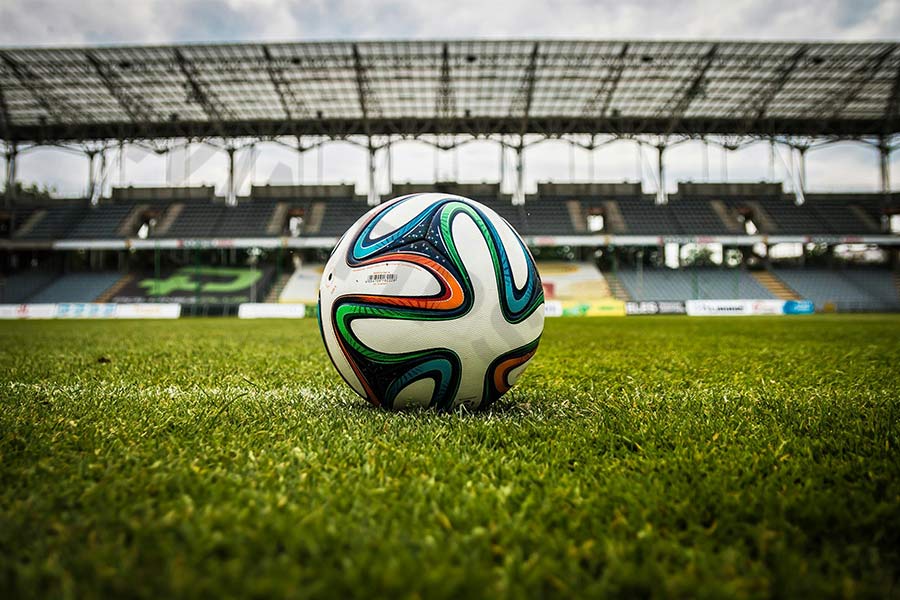The prime age of soccer players varies significantly depending on their position on the field. For instance, goalkeepers often reach their peak much later than strikers. This difference arises because each position demands unique skill sets, and these abilities can be impacted in different ways by age. In this article, Win Tips will help you understand this better.

What factors affect a footballer's performance?
There are several factors that can affect a football player's performance, and these must be considered when discussing players at their peak.
Speed
One of the primary factors that influence a player's performance is their speed. If a player starts out more slowly, they may struggle to compete at the highest level. In the modern game, defenders need to possess enough speed, particularly when playing against fast strikers.
Slow center-backs may find it especially difficult to cope with young, fast, pressing strikers. Furthermore, opposing teams may exploit this weakness by playing the ball over the defenders’ heads, putting them under pressure.
As wingers or strikers get older, they may also struggle to cope with opposing players due to a decline in speed. In particular, wingers in their early thirties may find it increasingly difficult to pose a significant threat in one-on-one situations, as their pace diminishes.
Agility
Agility is closely related to speed, and many players rely on good levels of agility to perform at their peak. As players age, they tend to become less agile, which can affect their performance. For central midfielders, number 10s, or false 9s, agility is a key attribute, and a loss of it can hinder their abilities and impact the age at which they reach their peak.
Strength
Strength is another important factor that influences a player’s performance and the age at which they reach their peak. For example, explosive, ball-playing strikers like Emile Heskey, in their prime, relied heavily on their strength to produce their best performances. As they age, players may lose some of that explosive power, affecting their ability to dominate in one-on-one situations and in aerial duels.

Players may become weaker over time, which could impact the age at which they reach their peak. If this is the case, they are more likely to reach their peak earlier in their career.
Minutes
One of the most important factors affecting a player’s performance is arguably the number of minutes they play on the pitch in competitive matches. Depending on the team, players may need to wait several years to break into the first team. This can push back the age at which they enter their prime. A player’s playing time can sometimes indicate when they will become a top footballer.
Peak age of soccer players by position
When do goalkeepers peak?
Goalkeepers are the only position that significantly differs when it comes to discussing the peak age of soccer players. Due to the nature of the goalkeeper position, which often requires standing still for long periods, goalkeepers typically have the longest careers of any position on the pitch. Goalkeepers can reach their peak at any age between 24 and 35.
When do goalkeepers reach their peak? This can vary from case to case. Some goalkeepers will experience a peak early in their career, while others may reach their peak later.

Take Gianluigi Donnarumma, for example. The Italian goalkeeper is widely regarded as one of the best in the world and is only 23 years old. Goalkeepers often play well into their late thirties, which means Donnarumma has a long career ahead of him, and he has already performed at a very high level. He could even be considered to be in his prime, particularly after playing a key role in Italy's Euro 2021 victory.
Furthermore, England's goalkeeper Joe Hart enjoyed one of the most successful periods early in his career. He made his league debut for Manchester City at just 19, under manager Sven-Göran Eriksson, who praised him as "one of the biggest talents in this country as a goalkeeper." At the age of 35, he continues to play regularly for Scottish champions Celtic, and it could be argued that Hart entered his prime earlier than most goalkeepers.
In short, there is no fixed age that determines when a goalkeeper reaches his peak, so it is best to consider each case individually.
When do defenders peak?
Defenders generally enjoy the second-longest careers in football, with most peaking between the ages of 23 and 32. Prime years for defenders are often around the ages of 27 and 28, but this can vary.
The demands of each defensive position significantly influence when a player reaches their peak. For example, an attacking full-back like Trent Alexander-Arnold may peak earlier than a center-back because his position requires more physical exertion and demands a high level of performance at a younger age.
A centre-back like Joël Matip, however, may peak later in his career, as his position places less physical strain on the body. For Alexander-Arnold to play well into his late thirties, he would need to alter his playing style, meaning he would no longer produce the same impressive statistics he achieved in his prime.
On the other hand, players like Matip could continue playing at a high level into their late thirties, as shown by Thiago Silva, who remains one of Chelsea’s top defenders at the age of 38.
When do midfielders peak?
Midfielders occupy a range of positions, and the age at which they peak can vary. The three primary midfield positions are central midfielders, attacking midfielders, and wingers.
Central midfielders typically reach their peak around the age of 25, while attacking midfielders usually peak at 26. Midfielders rely heavily on energy and stamina, so their peak age tends to fall between 23 and 30.
When do strikers peak?
Strikers generally hit their peak earlier than players in other positions. Many attacking players reach their prime as early as 21 years old.
The primary reason for this is that many strikers are explosive, which means they possess speed, strength, and athleticism—traits that tend to peak at a younger age.

An example of a striker who reached his peak at a younger age is Kylian Mbappé. As of 2022, he is 24 years old and has scored 190 goals in 237 games for PSG. He has also scored 12 goals in World Cup tournaments, despite playing in only two. That’s just four goals shy of Miroslav Klose’s record of 16 in World Cup tournaments, and Mbappé could very well play in three or four more.
Yes, Mbappé will probably continue to improve, but he is already entering his prime at such a young age. His exceptional pace won’t last forever, and he’ll need to adjust his style of play as he gets older.
Many bettors rely on websites that provide bet football tips to improve their chances of winning
Why do soccer players decline after 30?
Playing elite soccer is better suited to younger athletes. Although there are exceptions, once a soccer player reaches 30, they are likely to see less playing time. They will slow down physically, suffer more injuries, and have less desire to play.
Only the best soccer players can continue to play at a high level into their thirties while keeping younger players entering their prime out of the starting lineup. One thing to consider is that there have been significant improvements in physiotherapy and nutrition over the past few decades, allowing players to play for much longer. This, combined with players' increased focus on self-care, means that many players are able to peak later in their careers and maintain an elite level of play as they get older.
In summary
In conclusion, a soccer player prime age is influenced by various factors, including position, physical attributes, and the demands of the game. While strikers may peak earlier due to their reliance on speed and agility, goalkeepers often excel later thanks to their focus on experience and decision-making. Understanding these differences highlights the dynamic nature of soccer and the diverse pathways to success for players in their respective roles.
See more: At what age do soccer players retire? Factors affecting their decision







